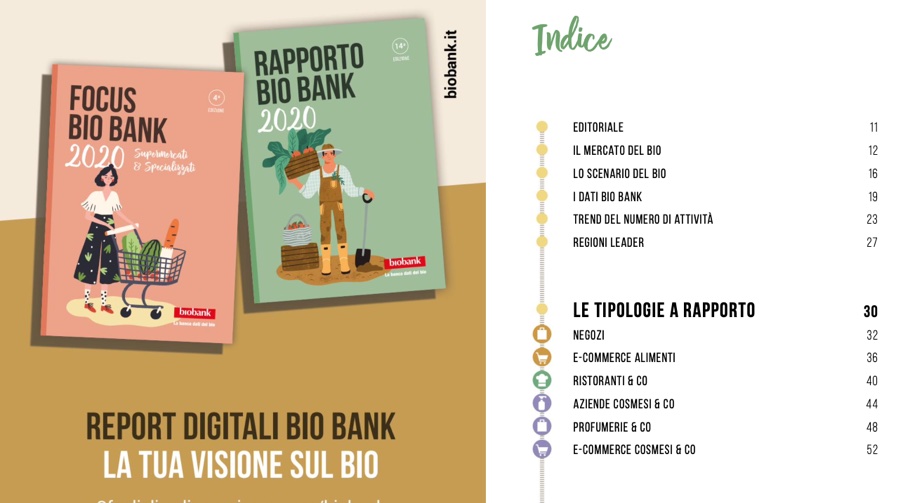The ecological transition towards full sustainability can no longer be postponed. This is one of the reasons why organic farming continues and will continue to grow. Telling the story of what came to the fore in a “normal” year such as 2019, while the effects of the extraordinary pandemic year is the task of the Bio Bank 2020 Report, now in its 14th edition. The Bio Bank 2020 Report focuses on six fields of organic activity (trade, food e-commerce, restaurants, cosmetic companies, perfume sellers and cosmetic e-commerce) with an even richer dataset. It also goes into the organic scenario in Italy, as well as new developments on the market. It rounds off with key benchmarks relating to sustainability. All in 74 pages, freely available on issuu.com/biobank.
Organic is everywhere
In 2020 the total organic market in Italy was worth €6.9bn. The domestic market, amounting to €4.3bn, more than doubled in ten years (+118%). Above all, large-scale distribution tapped into and boosted this growth, with sales of over €2bn (+279%). There was a 58% growth in all other distribution channels, achieving sales of €2.3bn. And exports grew to €2.6bn (+131%). The number of organic farms also increased by more than 80,000 in 2019 (+34.5% in 10 years) and farm land dedicated to organic acultivation, almost 2 million hectares (+33.5% in 10 years), equal to 15.8% of the cultivated area in Italy. This change of scenario has taken place in just a few years and represents an enormous challenge for organic farming: now that everyone is organic, the “original” organic farmers must be even more organic. The pioneers of organic must now be pioneers of a social values-based model – not just the product, but everything that revolves around it.
Read the Bio Bank Report on Issuu.com (Italian)

